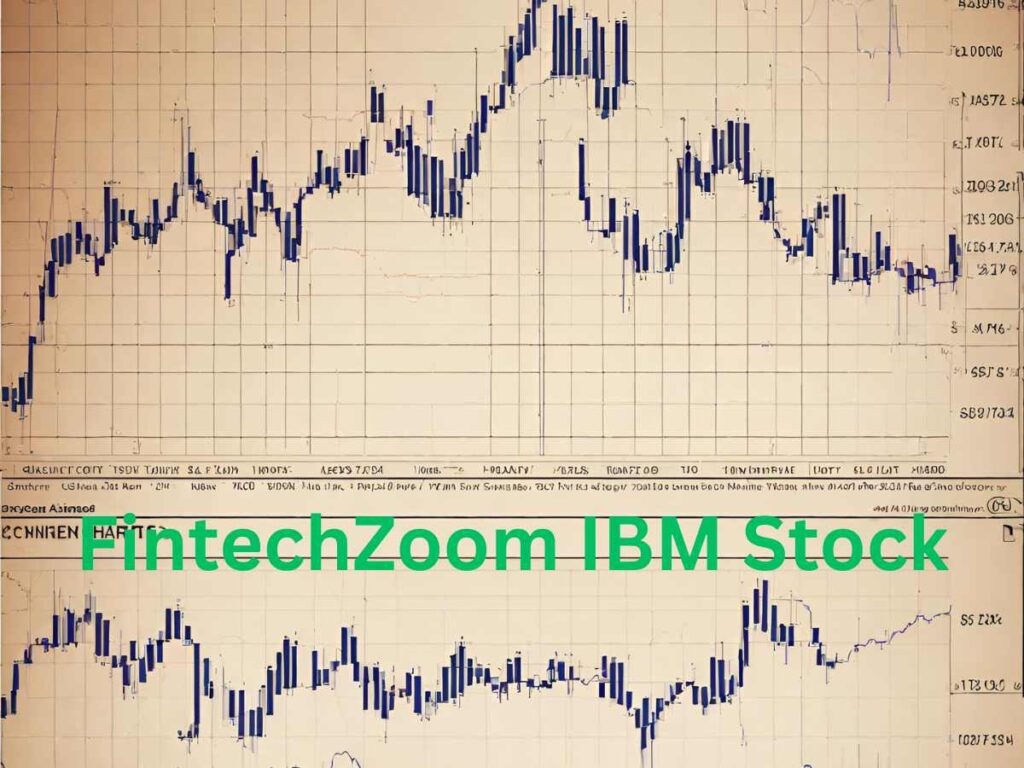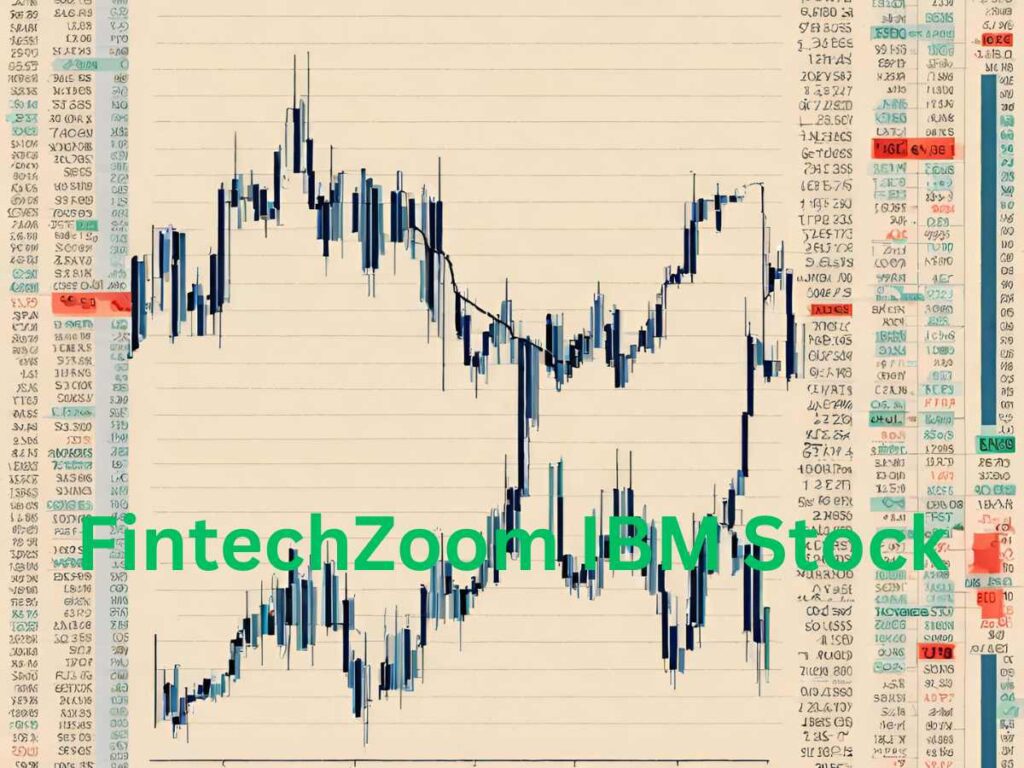
In the ever-evolving landscape of finance and technology, few companies stand as prominently at the intersection as IBM.
As financial technology, or fintech, continues to reshape traditional business models and consumer behaviors, investors are keenly observing how established players like IBM adapt to this new reality.
In this comprehensive guide, we delve into the intricate relationship between fintech and FintechZoom IBM Stock, analyzing the impact of financial technology on IBM’s business strategies, financial performance, and market positioning.
Understanding the Impact of Fintech on IBM
IBM’s embrace of fintech solutions has been a strategic move to enhance its competitiveness and relevance in a rapidly changing industry.
By leveraging advanced technologies such as blockchain, artificial intelligence, and data analytics, IBM has streamlined its operations, reduced costs, and improved efficiency across various departments.
This integration of fintech capabilities not only optimizes internal processes but also enables IBM to offer more competitive products and services in the marketplace.
Examples include the utilization of blockchain for supply chain management and AI-powered chatbots for customer support, showcasing IBM’s commitment to innovation in the fintech space.
Analyzing IBM’s Financial Performance Amidst Fintech Innovations

IBM’s foray into the fintech sector has yielded tangible results in terms of revenue growth and profitability. The company’s strategic focus on fintech-related services, such as blockchain and AI-powered solutions, has attracted more clients and enhanced customer retention rates.
Consequently, IBM has experienced a notable surge in revenue from fintech-driven offerings, reflecting the positive impact of embracing technological advancements within the financial landscape.
Moreover, the incorporation of disruptive technologies has translated into improved profit margins and operating cash flow for IBM, underscoring its sustained profitability amid rapid technological evolution within the financial industry.
Key Factors Influencing FintechZoom IBM Stock Valuation
The integration of fintech innovations directly influences IBM’s stock valuation, as investors closely monitor how the company adapts to these changes.
Successful integration of cutting-edge fintech solutions can lead to increased investor confidence and subsequently drive up IBM’s share price.
Conversely, any negative perceptions about IBM’s ability to leverage fintech advancements may result in a decrease in share price.
Additionally, regulatory changes within the fintech industry can significantly impact IBM’s stock valuation, highlighting the importance of staying abreast of evolving regulatory standards.
IBM’s Strategic Initiatives in the Fintech Space
IBM has been proactive in expanding its presence in the fintech sector through strategic partnerships and acquisitions.
Collaborations with financial institutions and acquisitions of specialized firms demonstrate IBM’s commitment to providing innovative solutions tailored to the needs of the fintech market.
Moreover, the development of proprietary fintech solutions, such as blockchain research with Columbia University, reinforces IBM’s position as an innovator in the fintech space.
Market Sentiment and IBM Stock Trends
Investor sentiment towards IBM stock is heavily influenced by perceptions of the company’s ventures in the fintech space.
Positive announcements regarding fintech partnerships or successful implementations of innovative solutions can lead to increased demand for IBM stock.
Conversely, negative sentiment may arise if investors doubt IBM’s competitiveness within the fintech industry or the success of its fintech initiatives, potentially leading to downward pressure on IBM’s stock price.
Comparing IBM’s Stock Performance with Fintech Industry Peers
While IBM’s stock performance has shown steady growth, comparisons with fintech industry peers such as PayPal, Square, and Visa reveal differences in stock trends.
These fintech companies have experienced significant gains, reflecting the growing demand for innovative financial services.
However, IBM’s stability and long-term potential offer investors a conservative investment option amidst the dynamic fintech landscape.
Investment Strategies for IBM Stock in a Fintech-Driven Market
Incorporating IBM stock into a portfolio with fintech exposure allows investors to benefit from diversification while mitigating risk.
While fintech firms may offer high-growth prospects, IBM’s reputable standing provides stability in the face of market volatility.
Moreover, IBM’s strategic initiatives in the fintech space position the company for future growth opportunities amidst fintech innovations.
Future Outlook for IBM Amidst Fintech Innovations

As fintech continues to advance, IBM can anticipate both challenges and opportunities in this rapidly changing landscape.
The integration of innovative technologies into the fintech sector presents new avenues for growth and development for IBM.
However, increased competition and evolving market dynamics pose challenges that IBM must navigate to maintain its competitive edge.
FAQs about FintechZoom IBM Stock
Is IBM a good stock to buy now?
- The decision to buy IBM stock depends on individual investment goals, risk tolerance, and market analysis. Investors should conduct thorough research on IBM’s financial performance, industry outlook, and future prospects before making a decision.
Where will IBM stock be in 5 years?
- Predicting the exact future price of IBM stock in 5 years is challenging due to the volatility of the stock market and unforeseen events. However, analysts may provide projections based on current trends, market conditions, and IBM’s business strategy.
Is IBM a good stock to buy in 2023 for long-term?
- As with any investment, whether FintechZoom IBM Stock is a good stock to buy for the long-term in 2023 depends on various factors such as the company’s financial health, growth prospects, competitive position, and market conditions. Investors should carefully assess these factors and consult with financial advisors before making investment decisions.
What will IBM stock be worth in 2030?
- Predicting the exact value of IBM stock in 2030 is speculative and subject to numerous variables, including macroeconomic factors, technological advancements, and industry trends. Investors should focus on long-term investment strategies, considering IBM’s performance and potential growth opportunities over time.
Conclusion
In conclusion, the intersection of fintech and FintechZoom IBM Stock presents a compelling opportunity for investors seeking exposure to both traditional tech giants and innovative financial technology companies.
By understanding the impact of fintech on IBM’s business strategies, financial performance, and market positioning, investors can make informed decisions in navigating the dynamic fintech-driven market.
As FintechZoom IBM Stock continues to adapt to fintech innovations, monitoring market trends and staying abreast of key developments will be crucial for maximizing investment opportunities in the evolving landscape of finance and technology.








